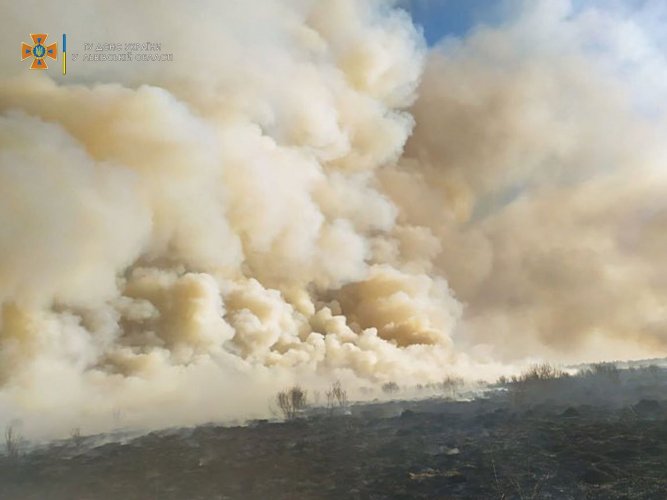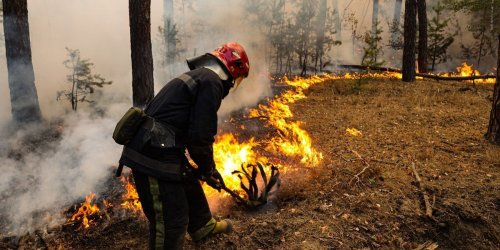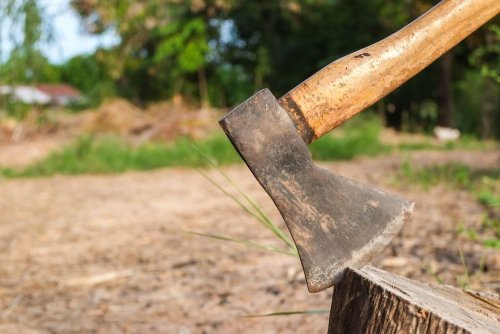In Ukraine, since the beginning of 2022, the State Inspectorate has prosecuted 330 piles of dry vegetation, of which 232 residents of the Volyn, Lviv, Zhytomyr and Rivne regions.
Fines totaling more than 821,000 hryvnias were imposed on arsonists, reports State Inspection on Telegram.
The anti-leader regions in terms of the number of prepared protocols for dry burning:
- Volyn region – 117 protocols;
- Polisky district (Zhytomyr and Rivne regions) – 66 protocols;
- Lviv region – 49 protocols.
The message explained that during the burning of dry vegetation and leaves, harmful substances enter the air, including dioxins, benzopyrene, dust, nitrogen oxides, carbon monoxide, heavy metals and a number of carcinogenic compounds.
It also leads to a decrease in productivity, because the upper soil cover is destroyed and all living organisms die. In addition, fire can spread and destroy fields, meadows, forests and homes.
Eco-inspectors advised to choose composting to dispose of plant remains. This will enrich the soil and increase the yield.
Fallen leaves can also be used to arrange "warm" beds, to warm beds during the winter, and as mulch (a protective layer that covers the upper part of the soil).
Arbitrary burning of vegetation or its remains is subject to fines:
- for the population – from UAH 3,060 to UAH 6,120,
- for officials – from UAH 15,300 to UAH 21,420.
Fines for setting grass on fire in a nature reserve fund:
- for citizens – from UAH 6,120 to UAH 12,240;
- for officials – from UAH 21,420 to UAH 30,600.
The message emphasized that starting in March 2022, the Verkhovna Rada made changes to the Criminal Procedure Code, strengthening responsibility for crimes against the foundations of national security under martial law. In particular, this applies to piles of dry grass. Liability for crimes provided for in Art. 113 "Sabotage", punishable by 15 years or life imprisonment, with confiscation of property.
As EcoPolitic reported before, in Ukraine in the autumn period the problem of burning dry leaves is getting worse, which causes air pollution with toxic and carcinogenic substances. People who are responsible for the occurrence of fires in ecosystems face criminal and administrative liability, and these actions can be qualified as sabotage.





